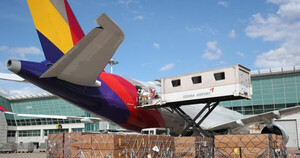
In a surprising move that has sent ripples through the airline industry, MBK Partners, South Korea’s largest private equity firm, has decided to withdraw from the acquisition race for Asiana Airlines’ cargo division, according to IB industry sources on June 12. This decision comes amidst growing concerns from regulatory authorities about the sale to foreign capital.
MBK Partners had initially planned to join forces with Air Premia consortium, contributing around 300 billion won ($243 million) of the estimated 500 billion won ($405 million) acquisition cost. However, this plan was shelved as Meritz Securities stepped in to fill the vacancy left by MBK Partners, securing additional funds and submitting a Letter of Commitment (LOC).
Industry insiders have pointed out that policy regulators’ apprehensions about foreign capital participation played a significant role in MBK Partners’ withdrawal. The presence of overseas investors in the MBK SS No.2 Fund, including Canada’s British Columbia Investment Corporation (BCI) and the Colorado Public Employees Retirement Association (PERA) from the US, raised flags about foreign management involvement due to current laws strictly prohibiting foreign entities or individuals from exercising management rights in the aviation sector.
Given the strategic importance of national airspace operations and associated security concerns, regulations are stringent regarding foreign ownership and management within the aviation industry. Even if foreign capital owns less than 50% of an airline’s shares, approval for operating licenses can be challenging if the Ministry of Land, Infrastructure and Transport deems there is significant foreign control.
This backdrop significantly influenced MBK Partners’ decision to not submit their LOC as they anticipated challenges in meeting return-on-investment targets within a set period as financial investors.
The withdrawal of MBK Partners, a powerhouse with approximately $39 billion under management, has shifted focus on which low-cost carrier (LCC) will emerge as a key player in acquiring Asiana Airlines’ cargo unit. Besides Air Premia, Eastar Jet and Air Incheon were among other LCCs vying for this lucrative segment. Each contender has formed consortiums with financial investors (FIs) and strategic investors (SIs), aiming to strengthen their bids.
As part of conditions imposed by the European Commission (EC) for approving Korean Air’s merger with Asiana Airlines, the divestiture aims at ensuring competition remains unaffected by this major consolidation within South Korea’s aviation space.
Negotiations are currently ongoing with potential buyers for Asiana’s cargo business ahead of selecting a preferred negotiator. The deal is expected to be announced later this month after evaluations are conducted considering inputs from various stakeholders including EC and national authorities.
This development marks a pivotal moment in South Korea’s aviation industry as it navigates through regulatory complexities amid global interests vying for a share in one of Asia’s most dynamic markets.

